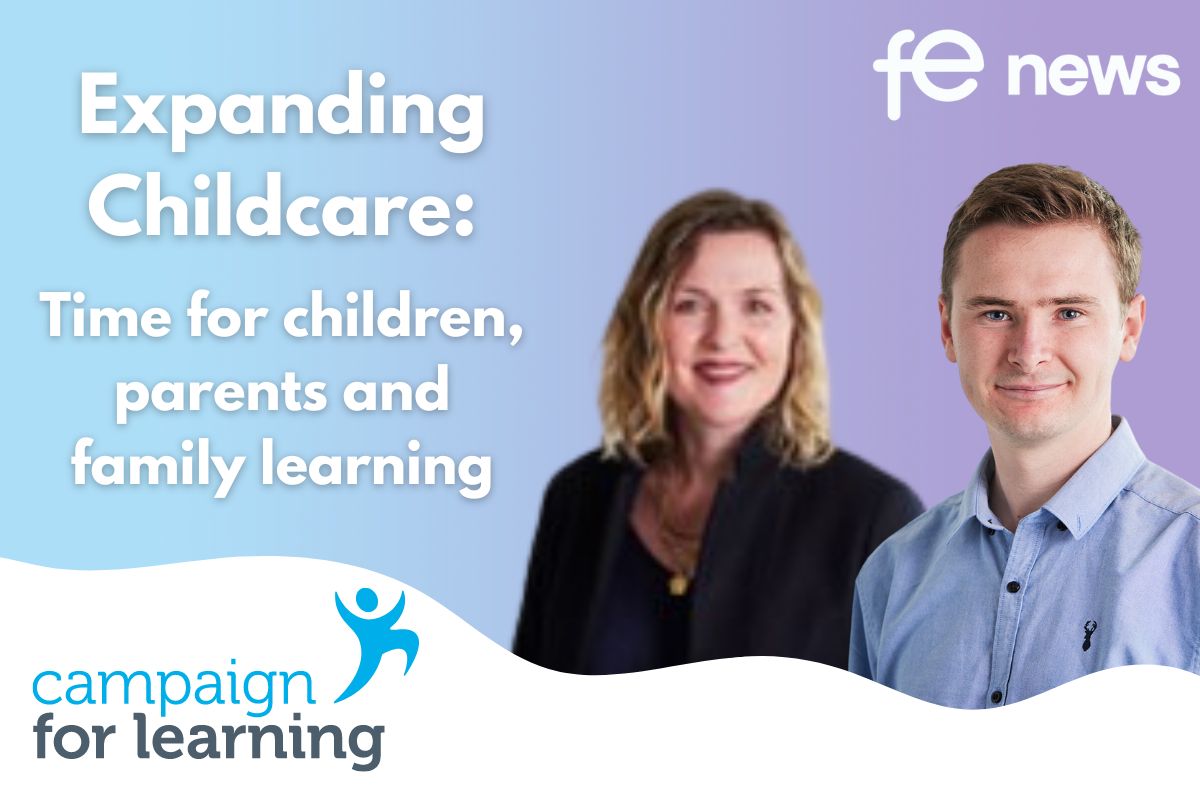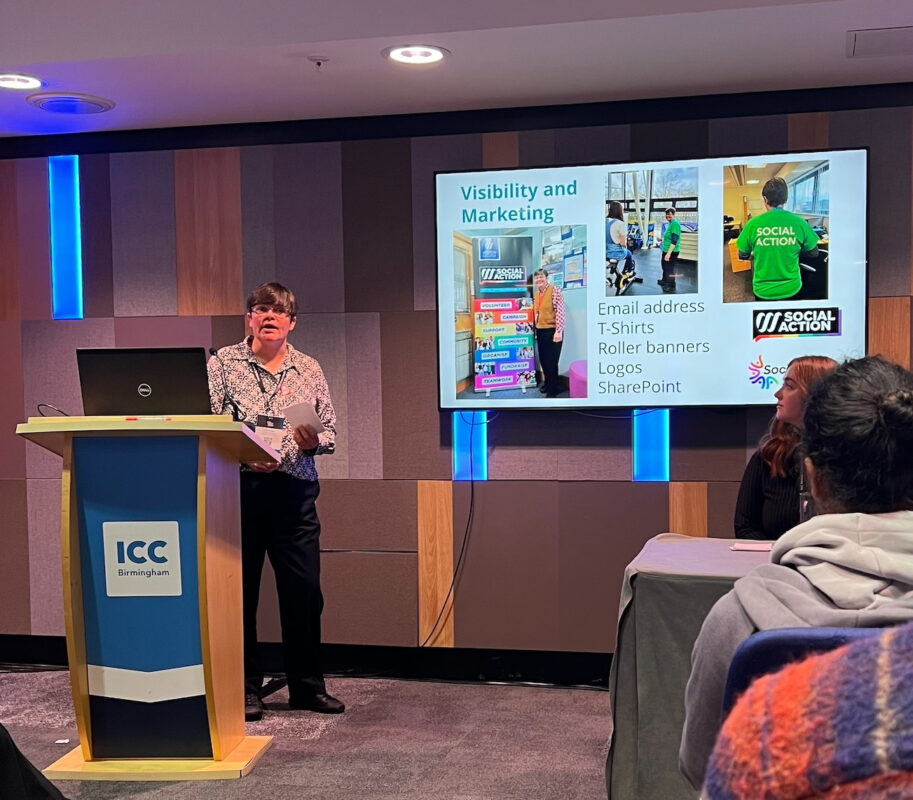The planned childcare entitlements and progression into work

Expanding Childcare: Time for children, parents and family learning
In the Spring Budget, the present Conservative Government announced a major childcare package of planned entitlements to free childcare.
At present, there are three entitlements to free childcare in England:
- All children aged 3-4 are entitled to 15 hours of free childcare for 38 weeks (570 hours per year) whether their parents are working or not;
- Working parents with 3- to 4-year-olds, who each work at least 16 hours per week at the National Living Wage of £10.42 – equivalent to £8,670 per year – and less than £100,000 per year are entitled to 30 hours of free childcare per week (1,140 hours per year); and
- 2-year-olds from disadvantaged backgrounds or with additional needs are entitled to 15 hours of free childcare per week for 38 weeks (570 hours per year).
The planned changes are:
- From April 2024, working parents of two-year-olds will be able to access 15 hours of free childcare – equivalent to 570 hours per year.
- From September 2024, 15 hours of free childcare will be extended down to the age of 9 months – for working parents – equivalent to 570 hours per year.
- From September 2025, working parents of children aged 9 months and upwards will be entitled to 30 hours free childcare per week right up to their child starting school – equivalent to 1,140 hours per year (DfE Education Hub, June 2023).
The entitlement to 15 hours of free childcare for all 3- to 4-year-olds will remain in place and so too will the entitlement of 15 hours for disadvantaged 2-year-olds.
Extending opportunity
The extension of free childcare of 30 hours per week to working parents with children from 9 months to age 5 – the start of school – will boost the labour supply and support working parents with childcare costs. Some parents might wish to work up to 30 hours per week – the definition of part-time employment – or 30 hours or more per week – the definition of full-time employment.
CIPD has long called for the UK Government to provide affordable childcare from the end of maternity leave to enable parents to return to work if they choose to.
We believe it is vital that any new entitlements are properly funded.
Increasing labour market participation
The cost of childcare is currently forcing one in four UK parents to give up their jobs.
The broader issue in the UK is that since the pandemic there has been an exodus of workers from the labour market, with the number of economically inactive people about half a million higher than in 2020.
This is a problem for employers and the Government. Initial actions taken by the Government in the budget to address levels of economic inactivity also focused on encouraging other groups – including older workers and those with disabilities or health conditions – back to work.
Benefits of maternal employment
High-quality early years provision improves the social mobility of young people. It affects their outcomes at every stage of life. Maternal employment is also associated with higher rates of academic achievement for the child, as well as less negative behaviour.
Returning to work when their children are young means parents, particularly mothers, are not penalised for their time outside of the labour market. It can help avoid loss of skills and confidence and support career opportunities and progression and ultimately boost gender equality. A recent survey of 4,000 women found 67% felt childcare duties in the past decade had cost them progress at work – including pay rises, promotions, or career development. Almost 90% believed that additional support was needed.
Challenges in the childcare sector
However, there are several issues that need to be addressed if the expansion of free childcare is to be rolled out effectively across the UK:
Availability of nursery places and labour shortages
Early years provision is currently delivered by an estimated 340,000 staff. While Department for Education (DfE) statistics show around half of providers have one or more surplus places, this does not consider the uneven geography of provision. For example, just 28% of local authorities in Outer London have enough provision for under-2s ‘in all areas’.
There is a clear need for the Government to support local authorities to ensure sufficient provision for all age groups following the staggered rollout. There are also signs of growing labour shortages.
In January 2023 there were 22,165 job postings for nursery nurses and assistants –almost three times the pre-pandemic level. The level of pay offered is a particular problem for the attraction and retention of nursery workers.
Under-funding
A further challenge is funding. Nurseries currently receive £4.80 per hour for 3- and 4-year- olds covered by the ‘free entitlement’. Yet, the Early Years Alliance says that the cost to the provider is more than £7.50. Currently, the care of these children is being “subsidised” by charging a higher amount for care of younger children. When nurseries are unable to charge more for younger children, financial trouble could follow.
Low levels of awareness among parents
Research by the Centre for Social Justice shows awareness of the existing support is surprisingly low with a quarter of parents of 0-4-year-olds unaware of the 15-hour universal entitlement. Better communication of existing and future entitlements is needed, with government responsible for delivering an accessible system.
What can employers do
In light of such low levels of awareness, employers should highlight the current and future government support on offer to working parents. It is also important to create a broader culture of support for working parents including enhancing and enabling take up of any parental leave provisions and supporting parents, where possible, through paid leave for childcare emergencies.
Employers should also look to offer a range of flexible working provisions and advertise roles as open to flexible working.
In terms of progression, evidence shows that women aren’t always given the same opportunities and development support as men. Ensuring that women’s talents and achievements are recognised and that they are supported to access challenging work, networking and development opportunities, can help overall progression.
Recommendation 1
The Government needs to learn lessons from the existing free childcare offer and foresee future challenges to ensure high-quality early years provision – including ensuring adequate nursery places, tackling labour shortages and properly funding childcare provisions.
Recommendation 2
The Government should better communicate to parents of the current and future planned support around childcare.
Recommendation 3
The Government should enhance the statutory paternity/partner provision to six weeks at or near the full rate of pay, to help deliver more balance and choice over caring responsibilities.
By James Cockett, Labour Market Economist and Claire McCartney, Policy Adviser, Resourcing and Inclusion, CIPD
Campaign for Learning has released a new series of articles, Expanding Childcare: Time for children, parents and family learning.
See below when each article will be published on FE News:
Part One: Childcare the welfare state – 20th July
1. Will Snell, Chief Executive, The Fairness Foundation
Childcare and a new social contract
2. Anneka Dawson, Head of Pre-16 Education, Ceri Williams, Senior Research Fellow, and Alexandra Nancarrow, Research Fellow, Institute for Employment Studies
The childcare sector: Providers and the workforce in England
Part Two: Childcare and time for work – 21st July
3. Paul Bivand, Independent Policy Analyst
Women, employment and childcare
4. James Cockett, Labour Market Economist and Claire McCartney, Policy Adviser, Resourcing and Inclusion, CIPD
The planned childcare entitlements and progression into work
5. Jane van Zyl, Chief Executive, Working Families
Combining flexible working and childcare to solve the childcare crisis
Part Three: Childcare and time for child development – 24th July
6. Janeen Hayat, Director of Collective Action, Fair Education Alliance
Improving childcare quality to support educational outcomes
7. Megan Jarvie, Head of Coram Family and Childcare
Making a step change to child development through childcare
8. Professor Elizabeth Rapa and Professor Louise Dalton, University of Oxford
Childcare, children’s development and education outcomes
Part Four: Childcare and time for parental engagement – 25th July
9. Lee Elliot Major, Professor of Social Mobility, University of Exeter
The childcare revolution: A new opportunity for parental partnerships in child learning
10. Bea Stevenson, Head of Education, Family Links the Centre for Emotional Health
Childcare and parental engagement in child learning
Part Five: Childcare and time for adult skills – 26th July
11. Simon Ashworth, Policy Director, AELP
The new childcare entitlements and skills bootcamps
12. Sharon Cousins, Vice Principal, Newham College and National Association for Managers of Student Services Executive
The new childcare entitlements and access to further education
13. Susan Pember, Policy Director, HOLEX
A thriving society means linking the new childcare entitlements to adult learning
Part Six: Childcare and time for family learning –
27th July
14. Sam Freedman, Senior Fellow, Institute for Government
The childcare revolution and family learning
15. Susan Doherty, Development Officer – Family Learning, Education Scotland
Family learning and childcare: Lessons from Scotland
28th July
16. Susannah Chambers, Independent Consultant
Bringing childcare and family learning together
17. Henriett Toth, Parent
Family learning and childcare: A personal experience











Responses